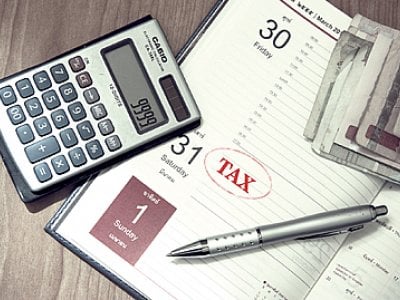Phuket business: Tax filing deadline approaches

PHUKET: For anybody who generated income in Thailand last year – regardless of where or how they were paid – the personal income tax filing deadline is March 31.
In this two-part series, the Phuket Gazette will outline the need-to-know basics for filing personal income tax in Thailand.
First, we will cover taxable income, deductions and tax certificates. In the next part, we will go over tax allowances, and how to apply progressive tax rates.
When it comes to taxes, many residents prefer to let a trusted partner or certified accountant on the payroll take care of everything.
In this case, it is important for whoever calculates your taxes to be aware of all your traceable income sources. This will ensure that they calculate and withhold the correct amount of tax, otherwise you may find yourself with an unexpected bill.
For those with multiple income sources, and those who are required to file a tax return with their respective home country, Americans for instance, it’s a good idea to have a good grasp on your finances, so you can benefit from tax treaty benefits.
Thailand has tax treaties with at least 55 countries, with 10 more on the table for negotiations.
Contrary to common office talk, luck has nothing to do with determining whether one will receive a bill or a check from Thailand’s revenue department. With a basic understanding of the system, filing procedures and regulations, tax payers can determine pretty easily before filing if they are owed or will owe.
The value of taxable income (Ti) will determine one’s income bracket and thus the tax rate they should have paid.
Before you can determine your income bracket rate, you have to determine how much of your income is actually taxable. The government overlooks a certain amount of your earnings to compensate for living expenses.
To calculate Ti, the formula is Ai – (D +A), where Ai is Accessible income, D is Deductions and A is Allowances.
Ai is your gross income, not necessarily how much you actually got paid.
The value of D accounts for basic living costs and depends on the category of income(s).
The Revenue Department identifies six categories of income including regular employment, copyright, property rental (with five subcategories), liberal professions, contracted work and a broad “other” category.
Most regular employees fit into the first category and are thus allowed to deduct a maximum of 60,000 baht for living expenses which is applied to the entire tax year, regardless of how much they actually spent on rent, food and other necessities.
Those who had gross income of less than 150,000 baht (US$ 5,000) can only deduct 40% of all wages, however.
For example, if last year you only made 100,000 baht (US$ 3300), you would be entitled to deduct 40,000 baht for living expenses, not 60,000 baht.
Income from contracted jobs, rental income, and dividends may also allow for certain deductions.
Whether you can actually claim these extra deductions will depend on the category identified on the withholding tax certificate.
This certificate is an official receipt of tax paid and is known as the PND Form.
PND is a transliterated acronym from “Por Ngor Dor” which stands for Pasee Ngoen Deuan, or literally, “tax income”.
If an employer withheld tax, then they must issue a PND to show it was paid. For fixed salaries, the company will issue a single PND summary of the tax year, but for other, irregular income sources, a separate PND for each payment should be issued.
Whether you’re filing the PNDs yourself or someone else does so on your behalf, all liability and responsibility for erroneous calculations and owed payments will ultimately fall on the employee.
Every source of income requires its own PND. There are at least 8 different PND forms (1a, 1a special, 2, 3, 2a, 3a, 53, and 54) which vary depending on the category of income and tax payer’s resident status.
In conclusion, use the PND to determine D.
In the next issue, we will cover Allowances (A) and how to apply and calculate Thailand’s progressive income rates.
Disclaimer: The information provided in this article is based on the personal experience of the author and direct inquiries with the Revenue Department. The Phuket Gazette will not be held liable for damages caused by misuse, misinformation or misunderstanding. All specific tax issues should be directly addressed with the Revenue Department. For more information, see W: rd.go.th, or T: 1161.
— Steven Layne
Latest Thailand News
Follow The Thaiger on Google News:


























